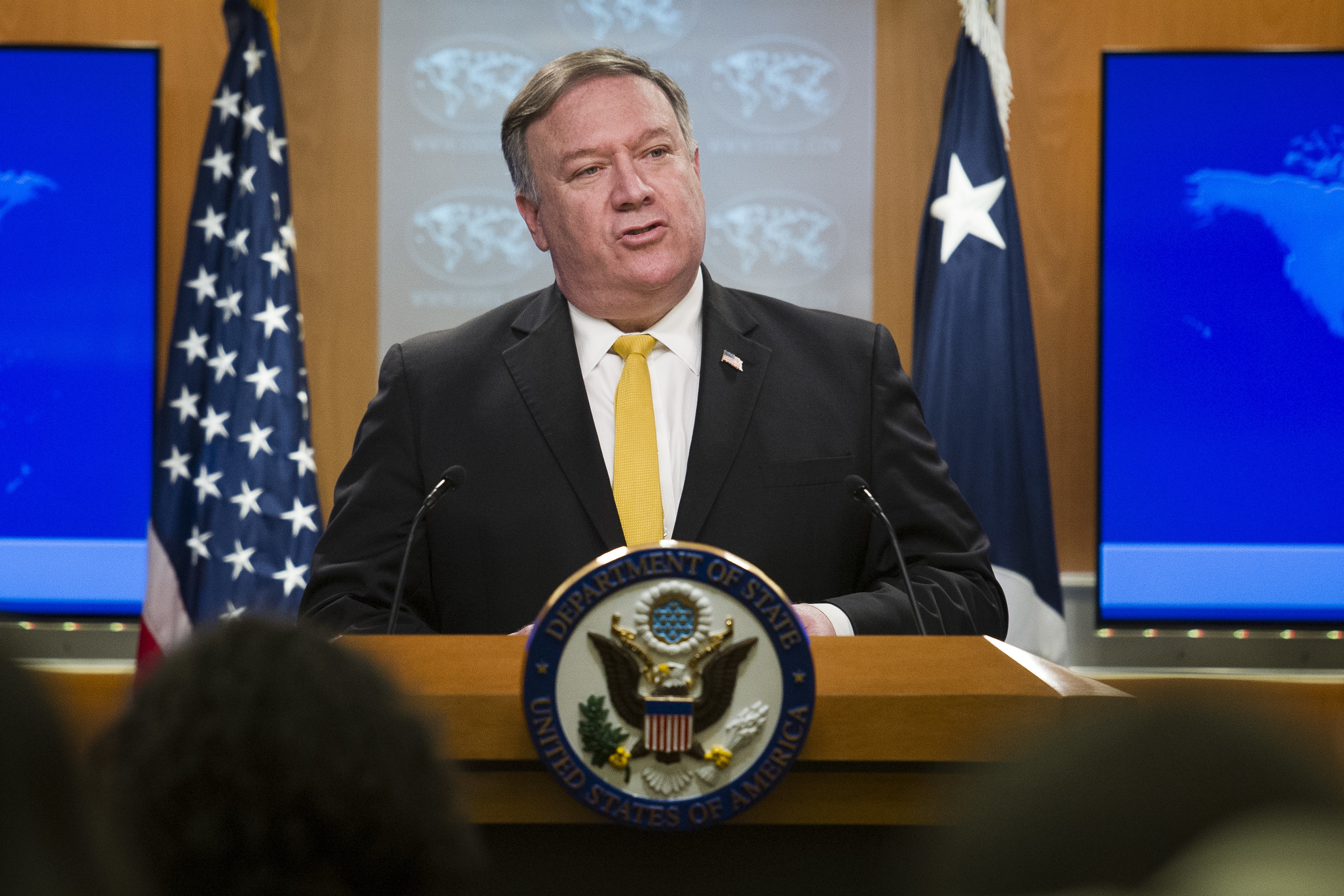The Iranian foreign minister has called the United States an "outlaw regime" following an announcement by the U.S. Secretary of State that the United States is terminating a 63-year old treaty with Iran.
“US abrogated JCPOA - a multilateral accord enshrined in UNSC Resolution 2231 - arguing that it seeks a bilateral treaty with #Iran. Today US withdrew from an actual US-Iran treaty after the ICJ ordered it to stop violating that treaty in sanctioning Iranian people. Outlaw regime,” Iran’s Foreign Minister Mohammad Javad Zarif wrote on his Twitter account on Wednesday night.
U.S. Secretary of State Mike Pompeo told reporters on October 3, "I'm announcing that the U.S. is terminating the 1955 Treaty of Amity with Iran. This is a decision, frankly, that is 39 years overdue,” he said, according to the Washington Post, referring to the year of the 1979 Islamic Revolution.
The move came after the International Court of Justice (ICJ) in The Hague announced its ruling on Wednesday regarding a lawsuit brought by Tehran in July against Washington's decision to reimpose unilateral sanctions on Iran. The move to do so followed U.S. President Donald Trump’s decision in May to pull out from the Joint Comprehensive Plan of Action (JCPOA), better known as the nuclear deal.
Iran’s lawsuit argued that the sanctions violate the terms of a decades-old treaty between Iran and the U.S., and called on the court to order Washington to immediately suspend the measures. Somehow, despite decades of differences and animosity between the U.S. and Iran, the Treaty of Amity survived until this week.
“Today marked a useful point with the decision that was made this morning from the ICJ. This marked a useful point for us to demonstrate the absolute absurdity of the Treaty of Amity between the United States and the Islamic Republic,” Pompeo said from the State Department on Wednesday.
According to the verdict by the ICJ the U.S., "shall remove by means of its choosing any impediments arising from the measures announced on May 8 to the free exportation to Iran of medicines and medical devices, food and agricultural commodities," as well as airplane parts. The ICJ added that sanctions on goods required for humanitarian needs could have detrimental impact on the health and lives of Iranians.
Speaking in a meeting with a group of political activists on October 3, Iranian President Hassan Rouhani called the verdict as “a great victory for the Iranian nation.”
“The International Court of Justice’s ruling is also a huge and significant legal and political success that, although the U.S. government is likely to refuse to enforce it, it is, however, a great victory for the Iranian nation that has been able to condemn the United States in an international institution,” the official website of the Iranian president cited Rouhani as saying.
The 1955 Treaty of Amity, Economic Relations, and Consular Rights called for "friendly relations" between Iran and the United States, encouraged mutual trade and investment, regulated diplomatic ties, and granted the ICJ jurisdiction over disputes. In a move to undermine Iran’s entire legal footing, Washington simply pulled out of the treaty, which had been signed in an era when Washington had allies in Tehran, namely Shah Mohammad Reza Pahlavi – the last monarch of Iran, before it became an Islamic Republic.
In August, the U.S. imposed a first round of sanctions on Iran after President Donald Trump in May pulled the United States out of the 2015 nuclear deal aimed at curbing Tehran's nuclear ambitions. The sanctions caused the national currency, the rial, to hit record lows, and sent Iran's economy into a downward spiral. More sanctions will follow, hitting oil and shipping industries, on November 5.
The renewed sanctions have already forced major EU companies, including France’s Total, Peugeot, and Renault, as well as Germany’s Siemens and Daimler, to suspend operations in Iran.







 Russian peacekeeping forces, deployed in the Karabakh (Garabagh) region of Azerbaijan since 2020, have commenced their withdrawal from the area.
Russian peacekeeping forces, deployed in the Karabakh (Garabagh) region of Azerbaijan since 2020, have commenced their withdrawal from the area.
 The number of evacuees from flooded areas in Kazakhstan has reached 97,852 people, including about 32,856 children since March 27.
The number of evacuees from flooded areas in Kazakhstan has reached 97,852 people, including about 32,856 children since March 27.
 Azerbaijan officially unveiled the logo for the upcoming 29th session of the Conference of the Parties to the United Nations Framework Convention o...
Azerbaijan officially unveiled the logo for the upcoming 29th session of the Conference of the Parties to the United Nations Framework Convention o...
 The Kazakh authorities have increased their arbitration claims against international oil companies involved in the development of the Kashagan oil ...
The Kazakh authorities have increased their arbitration claims against international oil companies involved in the development of the Kashagan oil ...



